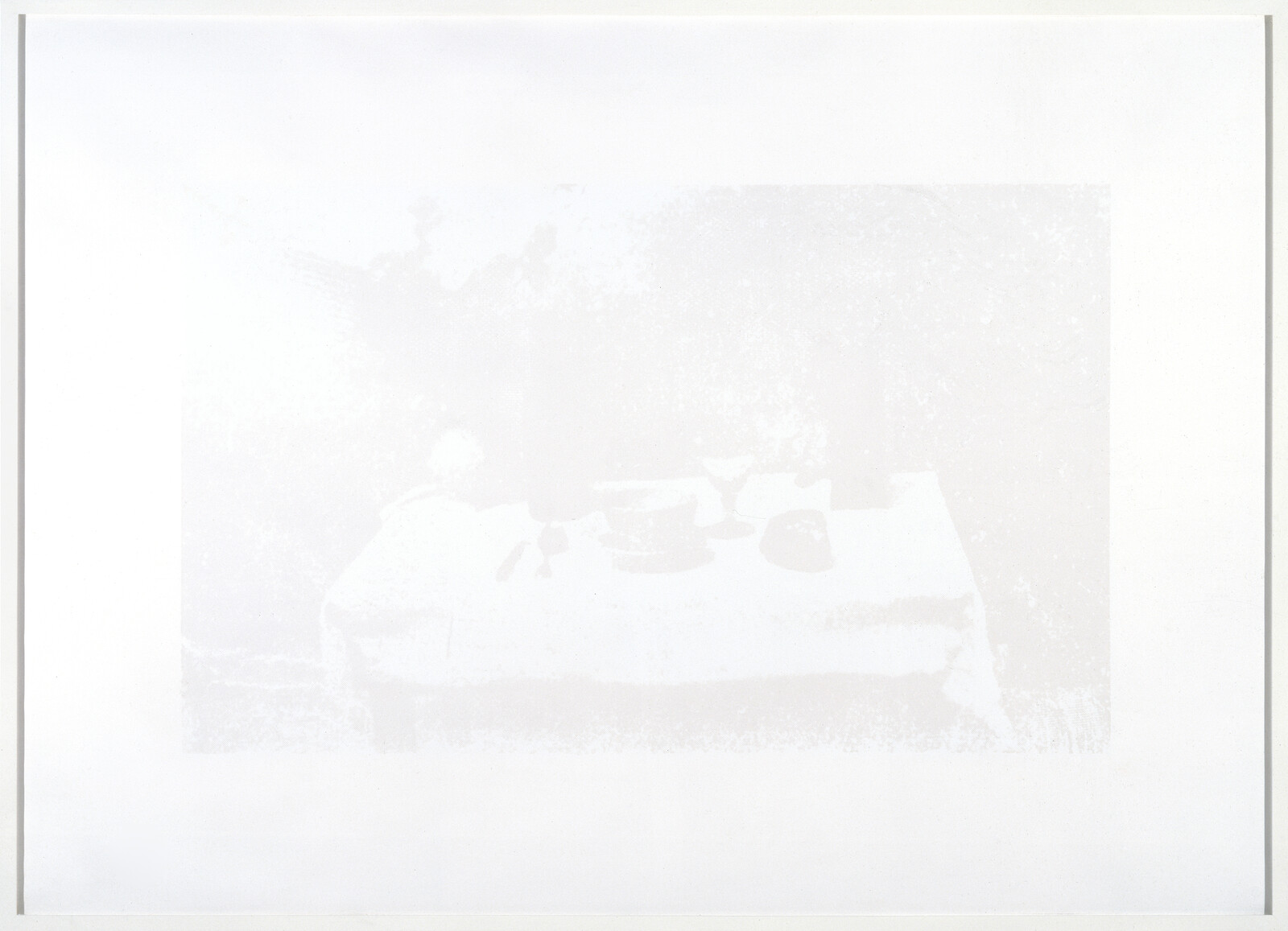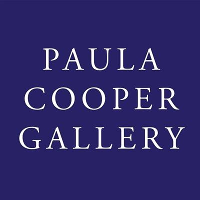May 30–July 12, 2024
534 W. 21st Street
New York, New York 10011
United States
Taking its name from Sarah Charlesworth’s pivotal artwork Tabula Rasa (1981), the current exhibition examines the significance of pedagogical influence within the context of conceptual photography. Tabula Rasa is a silkscreen of one of the earliest photographs ever taken, Still Life on Glass (c. 1829) by Joseph Nicephore Niépce. Charlesworth took the image from a history book and reproduced it in white-on-white in an homage to the invention of photography that also wipes the slate clean for her own innovations. Reflecting on the significance of Tabula Rasa in 2011, Charlesworth stated: “in my opinion, art is continually absorbing art of the past, and reconfiguring it, and remaking it, and reinventing it.”[1]
Beginning with Charlesworth’s teacher Douglas Huebler, Charlesworth herself, and her former companion and collaborator Joseph Kosuth, the exhibition will trace multiple trains of influence that emanate from these artists with a particular focus on works that illustrate the relationships between them and their students. Charlesworth was a student of Huebler’s in the late 1960s at Bradford College, MA, and it was through him that she met Kosuth. Huebler went on to teach at Harvard, and from 1976 to 1988 he served as dean of the School of Art at California Institute of Arts, where he influenced yet another generation of artists such as Christopher Williams, Stephen Prina, Luciano Perna, and Mike Kelley.
Charlesworth and Kosuth, in turn, had a significant impact on a cohort of conceptual artists who built upon their work deconstructing cultural imagery and critical texts. For instance, Deana Lawson, Liu Shiyuan, and Talia Chetrit each took classes with Charlesworth at either the Rhode Island School of Design or the School of Visual Arts in New York, and Lawson, James Welling and Michele Abeles taught alongside Charlesworth at Princeton University. Felix Gonzalez-Torres briefly taught at CalArts, and also maintained a mutual influence and deep connection with Joseph Kosuth.
Artworks in the exhibition will explore conceptual strategies around photography, both with text and without text. Of particular note is Huebler’s Variable Piece #70 (Holofernes) (1978). During a gallery swap with Paula Cooper in 1980, Yvon Lambert exhibited this work alongside responses to Artemisia Gentileschi’s painting by Charlesworth and Kosuth. Other highlights include Charlesworth’s Empire Light (Positive) and Empire Light (Negative), 1981, which were reproduced on the front and back covers of the first issue of BOMB magazine and have never previously been exhibited in New York, and Face/Surface, 1976, a little-known collaborative text-based work by Charlesworth and Kosuth that is wheat-pasted directly to the wall.
Artists: Michele Abeles, Sarah Charlesworth, Talia Chetrit, Aria Dean, Liz Deschenes, Sam Durant Lucy Charlesworth Freeman, Felix Gonzalez-Torres, Douglas Huebler, Larry Johnson, Mike Kelley, Joseph Kosuth, Deana Lawson, Glenn Ligon, Tony Oursler, Hirsch Perlman, Luciano Perna, Stephen Prina, Laurie Simmons, Liu Shiyuan, Sara VanDerBeek, James Welling, Christopher Williams
[1] Oral history interview with Sarah Edwards Charlesworth, November 2–9, 2011, Archives of American Art, Smithsonian Institution.

